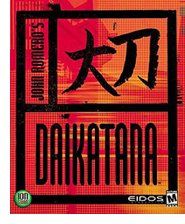
Year: 2000
Platform: PC
Developer: Ion Storm
What we expected: The biggest, baddest, most hardcore, in-your-effing face first-person shooter of all time, that’s all. Daikatana was coming from John Romero, one of the creators of Wolfenstein 3D, Doom and Quake – it’s said he even invented the word “deathmatch”. And this was his magnum opus, full of wild weapons, huge levels and smart wingmen. We wanted it bad. Yes, some folks were offended when a print ad infamously promised “John Romero’s about to make you his bitch. Suck it down.” But everyone else just did breathing exercises in eager anticipation of the embitchening suckery to come.
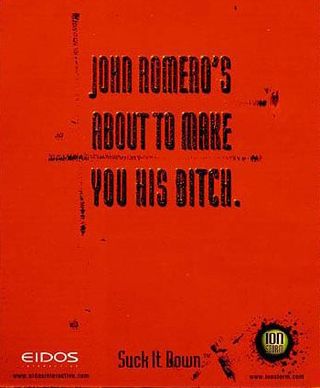
What we got: A very long wait that ended with a complete implosion. Daikatana and its ad were revealed in 1997, with the game expected on shelves that very Christmas. Didn’t happen. No, gamers had to wait until April 2000 to experience a broken, buggy, uninspired mess that would have been dull and dumb even if it had shipped on time 30 months earlier.
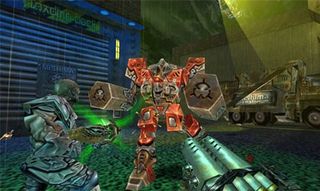
The story was some ridiculousness about jumping through time and using a magic sword to stop a virus. Graphics and sound were average at best. Your AI partners were so vapid we searched for a button that gave them their medication. There were jumping puzzles. And despite thousands of years’ worth of available enemies, Romero apparently decided people should spend an entire fourth of the game shooting at mosquitoes and cyborg frogs. Gamers hated it, critics hated it even more and Romero’s career never recovered.
4) TOO HUMAN
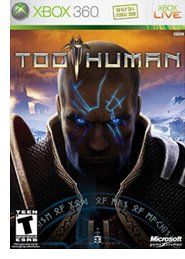
Year: 2008
Platform: Xbox 360
Developer: Silicon Knights
What we expected: What the game’s famous designer, Denis Dyack, had been promising us – loudly and often, in magazines and on website forums – for a full decade. Too Human was originally planned for the PlayStation… then for the GameCube… but in the end, apparently only the Xbox 360 was powerful enough to contain all its glory.
A sci-fi retelling of Norse mythology, the player would get to explore a futuristic Valhalla as Baldur the Brave, dealing with a multi-layered existential crisis the depths of which had never been attempted in this medium before. Dyack spoke of Nietzsche, of technology vs humanity and of finally crafting the experience he’d wanted to since founding developer Silicon Knights in 1992.
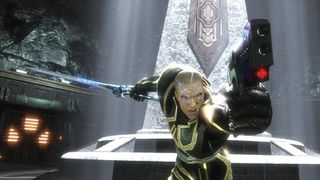
What we got: An eight-hour dungeon crawler with insultingly average gameplay. The much-hyped story was told through cheesy cutscenes, in a claustrophobic area outside the generic fighting levels that was too small to give the experience any real sense of scale or importance. The anticipated Norse violence seemed poorly and obviously edited to ensure a Teen rating.
But perhaps the biggest letdown was the controls, which bizarrely mapped all attacks to the right analogue stick and immediately removed any real connection between the player and the combat. You'd simply direct Baldur at the closest enemy, of which there were very few different types, and watch as he floated over. So much for suspension of disbelief. Don’t worry, though… if you died, you’d respawn in the exact same place, with the enemies damaged to the exact same degree. As long as you were willing to watch the 30-second death animation every time, you couldn’t not beat Too Human.
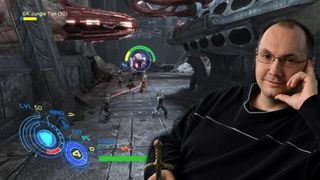
Above: Denis and the culmination of his vision
But by then, of course, no one really wanted to. Too Human felt like only a third of a real game (it was part one in a planned trilogy), finishing with a cliffhanger that, given the poor sales, will never be wrapped up. If this is what took ten years to make, we’d rather have waited twenty.
